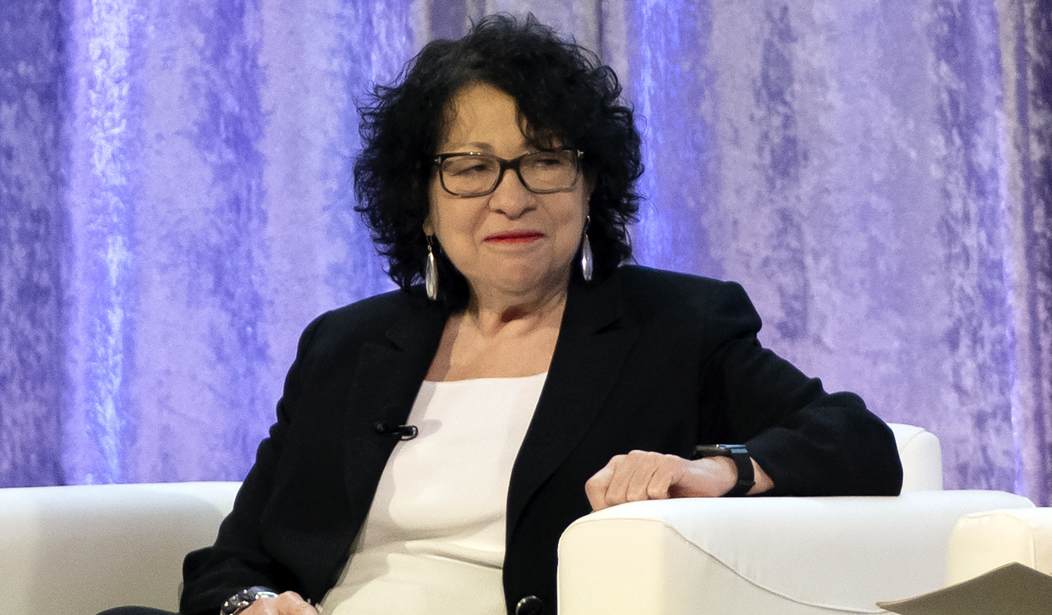There was a time I thought, and rightly so, that the men and women who sit on the Supreme Court were smart. Perhaps some of the smartest people on the planet. After all, there are only nine seats on SCOTUS in a country of 330+ million people so those who make it all the way have to be the cream of the crop, right?
Wrong.
I think the problem is less a decrease in intelligence and more an increase in blatant partisanship and politicization of the court, which puts an agenda before the law and logic. But it doesn't bode well for jurisprudence in America, and it makes fools of the Justices.
During the oral arguments in US v. Skrmetti, the case that will determine if states can ban 'gender affirming care' for minors, there was this exchange between Tennessee’s solicitor general J. Matthew Rice and Justice Sonia Sotomayor:
Rice: "How many minors have to have their bodies irreparably harmed for unproven benefits?"
— Greg Price (@greg_price11) December 4, 2024
Sotomayor: "Every medical treatment has risk. Even taking Aspirin." pic.twitter.com/I4k8ujr5Hl
Excuse me, but what?
Recommended
Now, technically -- technically -- Sotomayor is correct. All medical treatments have risks. The question is: what are those risks, and are the risks worth the benefits?
Has Sotomayor not heard of the concept of risk assessment? That is, to look at all the circumstances involved in potentially risky event(s) to analyze the risks and hazards. For example, if we were to compare the driving versus flying, the risk of dying in a car accident is about one in 5,000 whereas the risk of dying in a plane crash is one in 11 million. This makes flying much safer than driving.
In the same vein, the risks from taking aspirin versus permanent, irreversible 'gender affirming surgery' are vastly different.
Aspirin can increase the risk of bleeding, cause or exacerbate stomach ulcers, or cause nausea. But studies indicate some 25.6 million Americans are taking daily aspirin, without widespread damage or harm. We know the risks and benefits of aspirin because we have years of research on the issue. It's why some doctors stop prescribing daily aspirin for patients with cardiac issues: the studies showed no significant benefits in doing so.
In the event of an overdose or adverse reaction, there are treatments available to reverse the problems caused by aspirin and one can just stop taking aspirin if it no longer benefits them or is harmful.
There is no such recourse for 'gender affirming care.' You cannot undo the damage caused by puberty blockers or cross-sex hormones, you cannot call a mulligan on that surgery, and those who undergo surgery often experience frequent infections, sexual dysfunction, and a reliance on lifelong medical intervention for ongoing support.
At least one study has shown the risk of suicide increases twelve-fold following 'gender affirming care' and the Cass Report -- cited by Justice Alito during oral arguments -- showed the risk of suicide does not decrease following such surgery (a fact on which the ACLU attorney agrees). This is a dagger to the heart of the Left's biggest argument for 'gender affirming care': the emotional manipulation that your son will kill himself if you don't let him become a girl.
The state of Tennessee argued, and rightly so, that it's wrong to transition children because there is no evidence doing so is helpful -- and a growing body of evidence it's harmful. Our prefrontal cortex -- the part of our brain that controls attention, inhibition, emotion, complex learning, and theory-of-mind -- doesn't develop until we're 25 years old. Children should not be deciding they're 'trans' when their brains are so grossly underdeveloped and incapable of the complex layers of thought that can analyze the risks of 'gender affirming surgery.'
And that's the problem with Sotomayor's argument: she equates two vastly different things as if they are the same, or nearly so.
The risks of having your body permanently altered in the name of 'gender affirming care' are more serious and severe than taking an aspirin.
In fact, it's recommended children under the age of 16 don't take aspirin due to the risk of Reye Syndrome. It's a rare, but serious, disease that cause brain and liver damage in children.
And if we err on the side of caution when it comes to the risks associated with aspirin, we should do the same with the much more serious 'gender affirming care.'
Laws like the one in Tennessee recognize the difference.
Here's hoping SCOTUS does the same.

























